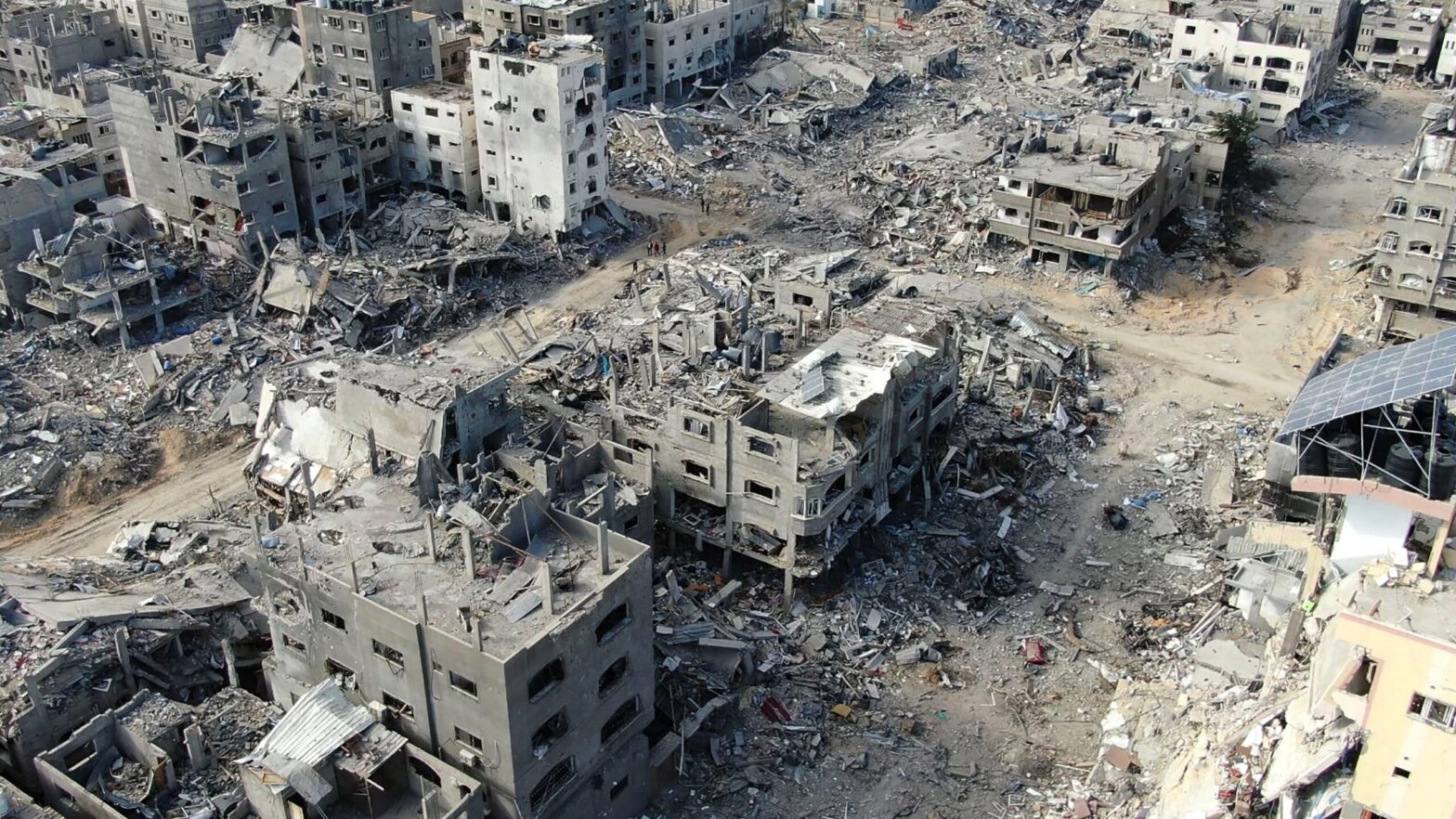Israeli military strikes on Gaza City’s Zeitoun neighborhood have left at least 63 people dead. This marks one of the deadliest single assaults in recent weeks. The operation, described by Israel as a push against militant strongholds, has instead triggered widespread alarm as civilians continue to bear the brunt of the escalating conflict. Witnesses from Zeitoun described entire residential blocks being leveled, with families trapped beneath the rubble and emergency workers struggling to reach survivors.
A Humanitarian Catastrophe in Gaza
Hospitals in Gaza, already strained by shortages of staff, fuel, and medical supplies, are being overwhelmed by the latest wave of casualties. Doctors report treating patients in corridors and on floors as resources dwindle. Aid groups have issued urgent warnings that the civilian toll has reached catastrophic levels. Children and elderly citizens make up a significant portion of the victims.
Zeitoun, one of the oldest districts of Gaza City, has long been a densely populated residential area. The scale of destruction in the neighborhood underscores the growing humanitarian crisis, as displaced families flee deeper into already overcrowded shelters. International observers warn that Gaza is on the brink of collapse. Basic infrastructure such as water, electricity, and healthcare is nearing total breakdown.
Israel’s Stated Military Objectives
The Israeli Defense Forces (IDF) maintain that their campaign targets militant factions operating inside Gaza. Officials point to underground tunnel networks, weapons caches, and command centers embedded within civilian districts. Israel argues that these tactics by armed groups justify the intensity of its strikes and frames the operations as necessary for national security.
However, critics argue that the proportionality of force and resulting civilian casualties raise serious concerns under international humanitarian law. Human rights organizations have called for independent investigations into whether the strikes constitute violations of the laws of war.
Mounting International Pressure
The strike in Zeitoun comes amid intensifying diplomatic pressure on Israel. Several world leaders, including those from the United Nations, European Union, and Arab League, have urged an immediate ceasefire to prevent further civilian suffering. Protest movements across global capitals are amplifying calls for accountability, demanding unrestricted humanitarian access to Gaza and protection for civilians.
The United States, a close ally of Israel, faces growing scrutiny over its role in supplying weapons and providing diplomatic cover for the Israeli campaign. Within Washington, debates are sharpening over whether continued support risks implicating U.S. policy in the mounting civilian casualties.
Displacement and Trauma
For Gaza’s residents, the impact of the ongoing bombardment extends beyond immediate casualties. Mass displacement has uprooted entire neighborhoods, with thousands of families seeking refuge in schools, mosques, and makeshift shelters. The psychological toll is equally staggering. Children are growing up amid unending cycles of violence and trauma. Aid workers on the ground warn that Gaza’s social fabric is fraying under the weight of despair, with long-term consequences for regional stability.
A Conflict Without Resolution
The strike in Zeitoun highlights a broader reality: the absence of any sustainable political solution continues to fuel cycles of destruction. While Israel insists on the necessity of military action and militant groups continue to launch attacks, civilians remain trapped between warring sides. Without meaningful negotiations toward a political settlement, each escalation deepens mistrust and pushes the prospect of peace further out of reach.
Conclusion
The events in Zeitoun serve as a grim reminder of what is at stake in Gaza’s ongoing war. As bodies are pulled from the rubble and hospitals buckle under strain, the humanitarian cost grows unbearable. International voices are calling for an end to the violence. Without immediate action, however, Gaza faces a future defined by ruin and displacement. Whether the world will heed the urgency of the moment remains uncertain. For those in Gaza, time is running out.

